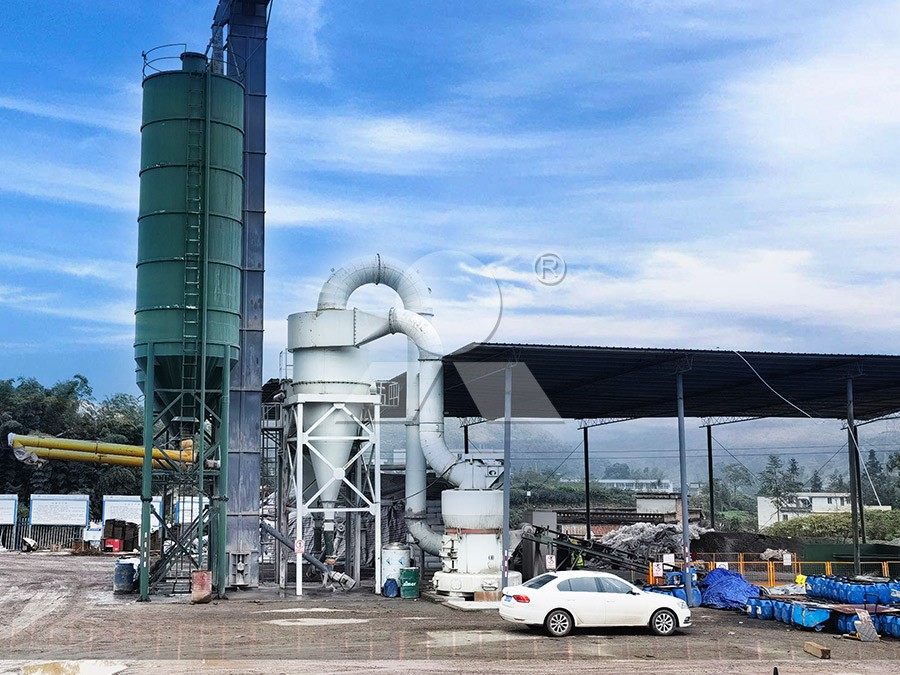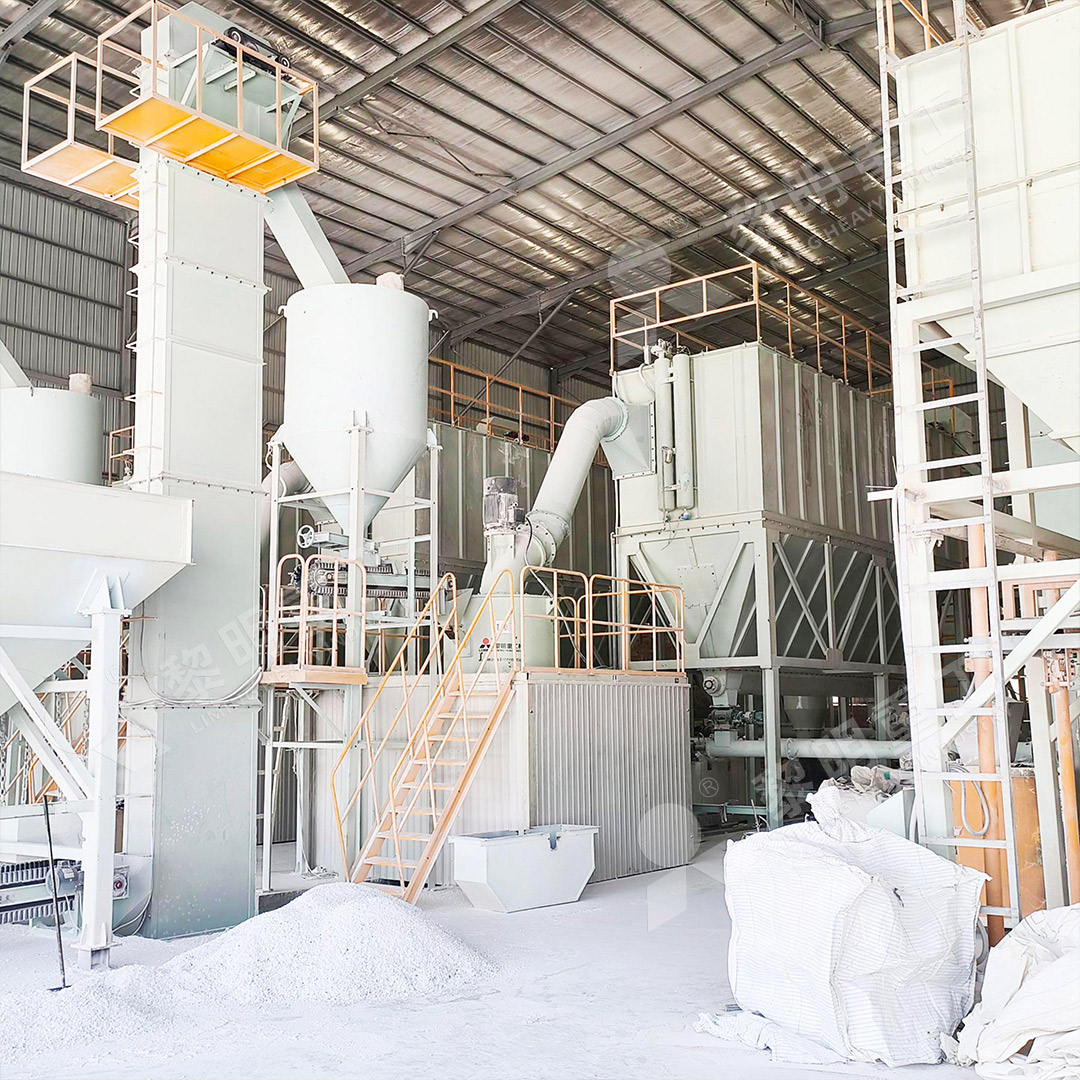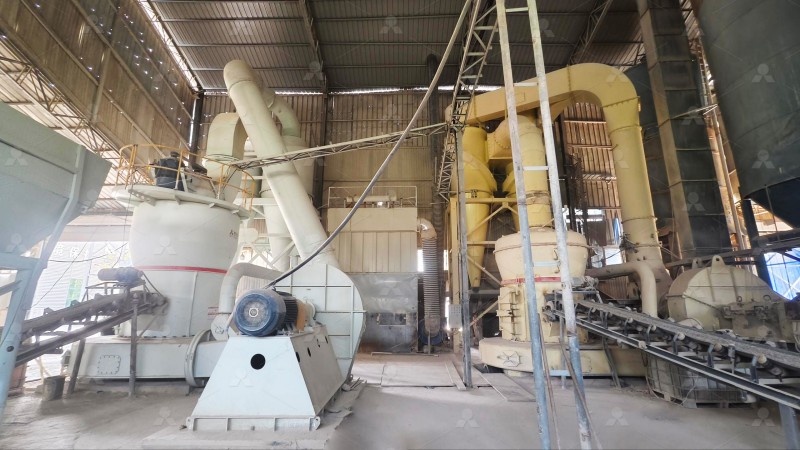80 Mesh Feldspar Grinding Mill: Price and Technical Specifications
We provide a wide range of mills — including Raymond mill, trapezoidal mill, vertical mill, ultrafine mill, and ball mill, obtained ISO9001 international quality certification, EU CE certification, and Customs Union CU-TR certification. Suitable for processing minerals such as limestone, phosphate, quicklime, kaolin, talc, barite, bentonite, calcium carbonate, dolomite, coal, gypsum, clay, carbon black, slag, cement raw materials, cement clinker, and more.
The discharge range of these mills can be adjusted to meet specific processing needs, typically from 80-400 mesh, 600-3250 mesh, and can achieve the finest particle size of up to 6000 mesh(D50).
If you are looking for a reliable grinding solution to turn stone or minerals into fine powder, please feel free to contact our online customer service.
Introduction to Feldspar Grinding Requirements
Feldspar, one of the most abundant minerals in the earth’s crust, requires precise grinding to achieve the optimal 80 mesh specification for various industrial applications. The process demands equipment that can maintain consistent particle size distribution while ensuring energy efficiency and minimal environmental impact. Selecting the right grinding mill becomes crucial for operations targeting this specific fineness requirement.

Technical Considerations for 80 Mesh Production
When targeting 80 mesh (approximately 177 microns) feldspar powder, several technical factors come into play. The grinding mill must offer precise control over particle size distribution while handling the abrasive nature of feldspar effectively. The hardness of feldspar, typically 6-6.5 on the Mohs scale, necessitates robust grinding elements and efficient classification systems to prevent over-grinding and maintain production efficiency.
For operations requiring consistent 80 mesh feldspar powder, we specifically recommend our MW Ultrafine Grinding Mill. This advanced system offers adjustable fineness between 325-2500 meshes, making it perfectly suited for maintaining precise 80 mesh specifications. With an input size capacity of 0-20 mm and throughput ranging from 0.5-25 tph, this machine provides the flexibility needed for various production scales.
Advanced Grinding Technology for Superior Results
The MW Ultrafine Grinding Mill incorporates several innovative features that make it ideal for feldspar processing. Its newly designed grinding curves of grinding roller and grinding ring significantly enhance grinding efficiency. Comparative analysis shows that with the same fineness and power, the production capacity is 40% higher than jet grinding mills and stirred grinding mills, while the yield is twice as large as traditional ball grinding mills.

Another significant advantage is the mill’s energy efficiency. The system energy consumption is only 30% of comparable jet grinding mills, providing substantial operational cost savings. The cage-type powder selector, incorporating German technology, ensures precise powder separation critical for maintaining consistent 80 mesh output.
Environmental and Maintenance Advantages
Modern grinding operations must address environmental concerns while maintaining productivity. The MW Ultrafine Grinding Mill addresses these challenges through its efficient pulse dust collector and muffler system, effectively reducing dust and noise pollution. The entire production process complies with national environmental protection standards, making it an environmentally responsible choice.
Maintenance considerations are equally important for continuous operations. The mill’s design eliminates rolling bearings and screws in the grinding chamber, preventing common failure points and reducing maintenance downtime. The external lubricating device allows lubrication without shutdown, enabling 24-hour continuous production – a crucial factor for operations requiring consistent output.
Economic Considerations and Operational Efficiency
When evaluating grinding mills for 80 mesh feldspar production, both capital investment and operational costs must be considered. The MW series represents a balanced approach, offering higher yielding capacity with lower energy consumption. The digitalized processing ensures higher precision in manufacturing, particularly for core components, resulting in longer service life and reduced replacement costs.

For operations requiring different capacity ranges or dealing with space constraints, our LUM Ultrafine Vertical Grinding Mill presents an excellent alternative. With input size of 0-10 mm and capacity of 5-18 tph, this vertically oriented system integrates ultrafine powder grinding, grading and transporting in a compact footprint. Its unique roller shell and lining plate grinding curve design generates material layers more effectively, achieving high rates of finished products through single-pass powder milling.
Frequently Asked Questions
What is the typical production capacity for 80 mesh feldspar using the MW Ultrafine Grinding Mill?
The MW Ultrafine Grinding Mill offers capacity ranging from 0.5 to 25 tph for feldspar grinding, with specific output dependent on material characteristics and operational parameters.
How does the mill maintain consistent 80 mesh particle size?
The advanced cage-type powder selector with German technology ensures precise powder separation, while the adjustable fineness control allows operators to maintain exact 80 mesh specifications consistently.
What maintenance requirements should be anticipated?
The absence of rolling bearings and screws in the grinding chamber significantly reduces maintenance needs. Regular inspection of grinding elements and the external lubrication system represents the primary maintenance requirements.
How does the energy consumption compare to traditional grinding methods?
The MW Ultrafine Grinding Mill consumes approximately 30% of the energy required by jet grinding mills and offers 40% higher production capacity compared to stirred grinding mills operating at the same fineness level.
Can the same mill process materials other than feldspar?
Yes, both the MW and LUM grinding mills can process various non-metallic minerals including limestone, calcite, dolomite, gypsum, barite, marble, talc, and coal powder, making them versatile investments for mineral processing operations.
